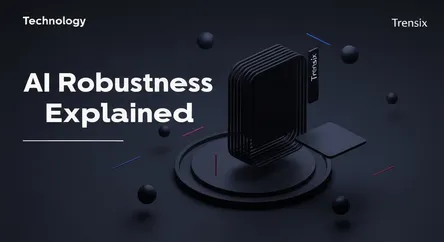Technology
AI Robustness Explained

Discover AI robustness: the key to creating reliable AI that withstands unexpected inputs, data shifts, and adversarial attacks.
What is it?
AI robustness is a system's ability to perform reliably when facing unexpected or adversarial inputs. It’s the AI’s resilience against noisy, corrupted, or strategically manipulated data. A robust model handles deviations from its training data, ensuring consistent outputs. This quality is fundamental for deploying AI in the unpredictable real world, moving beyond sterile lab conditions to create trustworthy systems.
Why is it trending?
With AI powering critical systems like self-driving cars and medical diagnostics, reliability is non-negotiable. The threat of “adversarial attacks”—subtle data manipulations that fool an AI—has highlighted major vulnerabilities. This has sparked a race to build more secure models. As a result, ensuring robustness has become a key priority for developers, businesses, and regulators aiming to build public trust and ensure safety.
How does it affect people?
Robust AI translates directly to greater safety in everyday life. It means a medical diagnostic tool is less likely to err and a self-driving car can better handle unusual road conditions. It also makes personal technology, like facial recognition logins and spam filters, more reliable and secure. Ultimately, robust AI protects users from system failures and builds confidence in the technology we increasingly depend on.